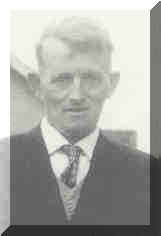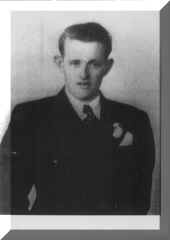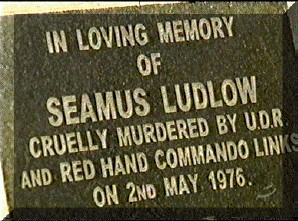The SDLP is close
to breaking with Sinn Féin on the issue of policing and appears ready to
nominate to the new Policing Board within the next fortnight if the gap
between itself and the British government over outstanding reforms can be
closed, according to a range of SDLP sources.
The party also
appears to be confident that if it can be won over to the new policing
arrangements then the Catholic hierarchy, in particular the Archbishop of
Armagh, Dr Sean Brady will endorse any decision to accept seats on the board.
Last year Dr
Brady publicly withheld his support for the Mandelson Police Act and indicated
that he would support the planned 'Police Service of Northern Ireland' only
when there was sufficient Nationalist satisfaction with the arrangements.
"I've no doubt that we would get his support now if we went ahead",
said one SDLP source.
With the Irish
government also likely to endorse any SDLP move in this direction the pressure
would then grow on the GAA to follow suit and lift the ban on members of the
British security forces playing the sport, as recommended in the Patten
report. This could result in the isolation of Sinn Féin on the issue and mark
the most serious breach so far in the Nationalist consensus that has defined
the peace process.
The key to
satisfying the SDLP rests almost entirely with the British government whose
officials are still engaged in discussions with the party over outstanding
issues. These include ensuring the neutrality of policing symbols such as the
force's flag and badge and meeting demands for inquiries into three
controversies involving allegations of security force collusion, the deaths of
lawyers Pat Finucane and Rosemary Nelson and that of Portadown man, Robert
Hamill.
SDLP sources
appear optimistic that these matters can be settled. The departure of Peter
Mandelson has, ironically, improved the prospects of agreement on the crucial
matter of neutral symbols. The former NI Secretary had given verbal assurances
to the party but such was the level of distrust between them caused by his
handling of the Police Bill at Westminster that the SDLP was loath to take his
word. The new Northern Secretary, Dr John Reid has instilled more confidence
but even so the SDLP may require that any guarantee be made public.
On the inquiries
issue it seems that the SDLP may get movement on the death of Robert Hamill,
who was beaten to death by a Loyalist mob in April 1997 while an RUC patrol
allegedly looked on. The policing aspects of that incident are being
investigated by the new Police Ombudsman Nuala O'Loan and it may be that a
fuller inquiry could follow her probe.
It is understood
that the SDLP and the British are working on a form of words to cover the
possibility of some sort of inquiry into the Pat Finucane killing once the
current police investigation headed by London Metropolitan Commissioner John
Stevens is over. The killing of Rosemary Nelson is more problematic since so
far there is no evidence of security force involvement in her death. Her
killing, in a booby trap car bomb, is also being investigated by a senior
English policeman and again the form of words being constructed to cover the
Finucane killing could embrace this case.
One idea being
canvassed is that the Finucane and Nelson deaths could be probed by a senior
judge in imitation of inquiries announced by the Taoiseach last year into the
Dublin and Monaghan bombs and the killing of Louth man, Seamus Ludlow.
On operational
matters discussions have been going on between SDLP representatives and the
RUC Chief Constable, Sir Ronnie Flanagan and are said to have made
considerable progress on issues such as placing the Special Branch under the
command of the CID and the closure of interrogation centres. The RUC is eager
to secure SDLP support so that a new recruitment drive, aimed at Catholics,
can be launched. Police morale is said to be low and absenteeism high while
the number of senior officers opting for early retirement is also rising.
SDLP sources say
they believe the feeling within the Nationalist community is running strongly
in favour of participating in the new policing arrangements provided that
their outstanding demands can be met. Party members are claiming that Sinn Féin,
which is holding out for legislative change, "has completely misread the
Nationalist mood" which, according to another source is strongly of the
view that "the situation needs to be moved on".
The fact that
many serving RUC officers are voting with their feet and Unionist politicians
are expressing unease at the changes is also helping to convince Nationalists
that the new policing arrangements could be to their benefit, according to
SDLP members. The party leader John Hume is said to be eager to make the move
while his deputy Seamus Mallon is still keeping his own counsel.
Some party
strategists believe that opening up a gap between the SDLP and Sinn Féin on
the issue could be advantageous during the impending British general election
while also strengthening the Unionist leader David Trimble and the Good Friday
Agreement. "We would fight the election on the slogan that we're the
party that is looking forward and the Provos are the ones looking
backwards", said one source. "I'm actually very excited by the
prospect."
Meanwhile the
Unionist leader David Trimble is being strongly criticised in private for
allowing his senior colleague and Arts Minister, Michael McGimpsey to
challenge the south Belfast MP, the Rev Martin Smyth for the Unionist
nomination in the British general election. At the south Belfast selection
meeting on Friday night, McGimpsey was beaten by a margin of twenty votes in
circumstances which appear to represent another victory for the anti-agreement
camp.
"Whoever
decided this should have their heads examined", protested one Unionist.
"Martin was always going to win. He's been there 19 years and everyone
knew this would be his last election. Sentiment was in his favour while
Michael's bid flew in the face of our no dual mandate rule. The result is that
the election was decided by factors that had nothing to do with the peace
process but the world believes otherwise. It makes you wonder how this party
manages to function at all!"


